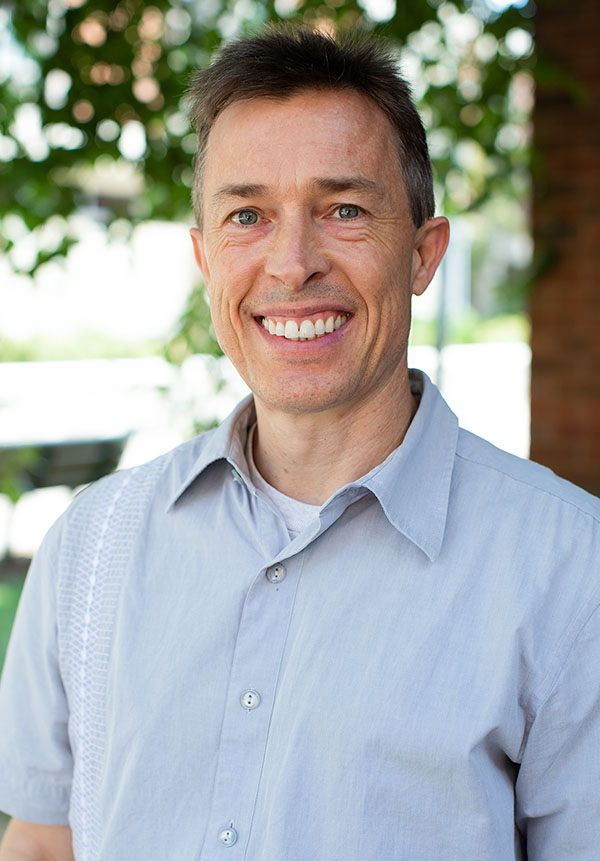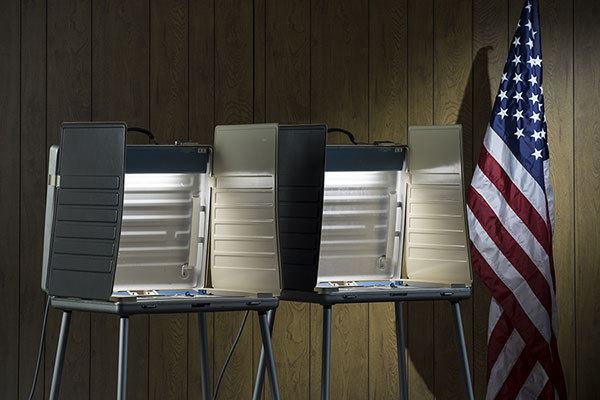BOONE, N.C. — Have you ever wondered if poor sleep begets poor choices? Appalachian State University faculty member Dr. David Dickinson has dedicated much of the last two decades to this very question.
Dickinson, a professor in App State’s Department of Economics, is investigating the connection between sleep and decision-making through a series of studies funded by National Science Foundation (NSF) grants.
“Each project uses insights from the previous to move the agenda forward,” Dickinson said.
Pinpointing the impact of sleep on various daily choices
Dickinson’s previous NSF-funded studies have included:
- An investigation into sleep and various decision environments that included simple social decisions. This extended into a study of insufficient sleep and civic engagement that explored the effects of sleep on social behaviors vital for a healthy democracy, including voting, signing petitions and donating to charities.
- An examination of sleep restriction and strategic interactions that sought to reveal how missing a good night’s sleep could affect a person’s decisions and interactions with others during their waking life.
- A study of the effects of sleep deprivation on decision-making as related to environments of risk or uncertainty, such as when choosing between more versus less risky gambles or when making assessments where new information may help update beliefs regarding uncertainty.
Examining the link between sleeping and eating habits
His most recent study — a three-year, NSF-funded project that is nearing the end of year one — focuses on the impact of sleep on dietary choices.
“This project differs in that I’m not focusing on socially interactive decisions like I’ve done previously,” Dickinson said. “Now, the focus is on individual decision-making relevant to food choice.”
Dickinson said unhealthy dietary choices, obesity and poor sleep often occur together, and the connection his study aims to make between sleep and food-related choices has the ability to help improve a person’s overall well-being.
The results could also inform employee self-care campaigns and other health promotions, Dickinson said.
For this study, Dickinson and his research team are working with young adult participants on a three-week protocol of manipulated sleep levels that include a week of restricted sleep (five to six hours per night) and a week of well-rested sleep (eight to nine hours per night).
At the end of each week, participants visit Dickinson’s lab and undergo a series of decision-based tasks related to food choice.
To ensure the results of his investigation into sleep and dietary choices better translate to the “real world,” Dickinson said his research differs from many sleep-related studies:
- The participants are only subject to moderate sleep restriction, rather than total sleep deprivation, to mirror the “chronic insufficient sleep levels experienced by a large portion of the U.S. population,” according to Dickinson.
- To more closely mimic normal life, Dickinson’s participants sleep in their home environment, rather than in a lab, while wearing a research-grade sleep tracking device.
This grant, which totals $406,628, is administered by App State’s Research Institute for Environment, Energy and Economics and will conclude in October 2023.
Collaborators in Boone and across the globe
Dickinson’s interdisciplinary team of researchers offers expertise in experimental economics, sleep science and behavioral psychology.
His co-principal investigators are Dr. Sean Drummond from Monash University in Australia and Dr. Naomi Kakoschke from the Commonwealth Scientific and Industrial Research Organisation, Australia’s national science agency.
Dickinson, who has taught seminar courses in App State’s Honors College and supported multiple honors theses, also hired two App State students to join his team: Lauren Mulholland, a senior psychology major from Glen Allen, Virginia, and Luca Coleman, a junior in the Honors College from Westminster, Maryland, majoring in economics and anthropology.
These undergraduate research assistants will gain valuable training in research methods, according to Dickinson.
What do you think?
Share your feedback on this story.
About the Department of Economics
The Department of Economics offers diverse courses that cover standard fields such as microeconomic and macroeconomic theory, labor, public finance, regional and development economics. The department is particularly strong in the areas of environmental and experimental economics. It offers the Bachelor of Science in business administration (B.S.B.A.) and the Bachelor of Arts (B.A.). Learn more at https://economics.appstate.edu.
About the Walker College of Business
The Walker College of Business at Appalachian State University delivers transformational educational experiences that prepare and inspire students to be ethical, innovative and engaged business leaders who positively impact their communities, both locally and globally. The college places emphasis on international experiences, sustainable business practices, entrepreneurial programs and real-world applications with industry. Enrolling nearly 5,000 students, including more than 4,500 undergraduates across 11 majors, the Walker College of Business has the highest full-time undergraduate enrollment in the University of North Carolina System. App State’s Walker College is accredited by AACSB International — the premier global accrediting body for business schools. Learn more at https://business.appstate.edu.
About Appalachian State University
As a premier public institution, Appalachian State University prepares students to lead purposeful lives. App State is one of 17 campuses in the University of North Carolina System, with a national reputation for innovative teaching and opening access to a high-quality, cost-effective education. The university enrolls more than 21,000 students, has a low student-to-faculty ratio and offers more than 150 undergraduate and 80 graduate majors at its Boone and Hickory campuses and through App State Online. Learn more at https://www.appstate.edu.














